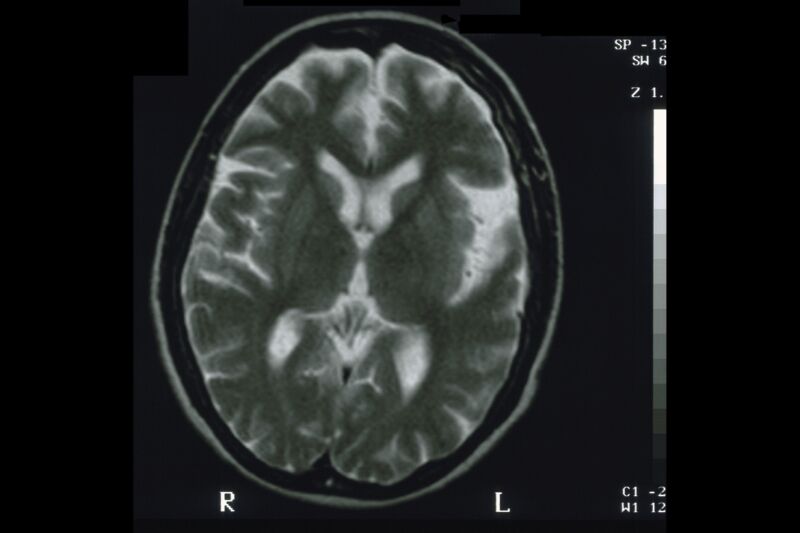FDA approves new Alzheimer’s treatment despite risks, unclear benefits

Enlarge / MRI of a human brain. (credit: Getty | BSIP)
The Food and Drug Administration on Friday granted a fast-tracked approval for a new Alzheimer's disease treatment, which may slightly slow the progression of cognitive decline in the disease's early stages but also raises risks of brain bleeds and swelling.
The treatment-lecanemab, brand-name Leqembi, made by pharmaceutical companies Eisai and Biogen-is an intravenous monoclonal antibody that targets amyloid-beta proteins, which accumulate in plaques in the brains of people with Alzheimer's. Researchers have not yet conclusively determined if amyloid plaques are a root cause of the disease, nor whether clearing them can significantly slow or halt cognitive decline.
The FDA's approval of lecanemab is via an accelerated pathway, which uses "a surrogate endpoint that is reasonably likely to predict a clinical benefit to patients." In this case, the surrogate endpoint was lecanemab's ability to reduce amyloid beta plaques in the brains of Alzheimer's patients.